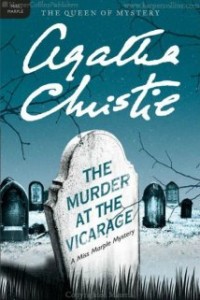Mystery, suspense and detective fiction are loaded with investigations led by cops, private detectives, forensic pathologists, crime scene investigators, and other specialists in solving mysteries. Whether they sweat witnesses into revelations or rely on careful observations to uncover clues, classic detectives solve mysteries using deductive or induction reasoning.
Deductive reasoning goes from the general to the specific. The investigator posits a theory and then looks for supporting evidence. For instance, the manner of the second murder was exactly like the manner of the first murder, so it’s likely that both murders were committed by the same killer, as in general a single killer will use a single specific method for murder.
If upon further investigation, it turns out that the wound in the first murder was inflicted by a short blade with a sharp point and a handle designed for stabbing—while the second murder was committed by single-edged razor blade, the investigator must reevaluate the deduction that led him to believe both murders were committed by the same killer.
Of course the same killer still might be guilty—a single killer with different weapons isn’t uncommon in mystery fiction—but the investigator will have to float a different theory. Fictional detectives often go through a series of possible deductive theories—and possible killers—in the course of a story.
Inductive reasoning goes from the specific to the general. The investigator recognizes patterns and creates theories based on those patterns. Miss Marple is Agatha Christie’s premiere inductive detective, as she constantly draws parallels between the minor crimes of her neighbors and the major crimes in the mystery’s plots.
Intuition and educated observations are necessary for both big to small and specific to general logic. Sherlock Holmes always backs his deductive conclusions with precise and specific observations. (Crumbs in a beard, loose tobacco leaves, water rings on a polished table, etc.) But I’ve read, and seen more and more TV & movie detectives, that rely on intuition enhanced by almost magical (or absolutely magical) abilities to observe. It seems to be a trend. Sometimes I enjoy it and other times I find it frustrating, as I’m not being given the opportunity to solve the mystery before the character.
How do you feel about these enhanced leaps of deduction/induction?






I love the current Benedict Cumberbatch version of Sherlock Holmes and his /almost/ supernatural ability to spot tiny clues and weave them into solutions. As viewers, we’re not supposed to keep up with Sherlock, we’re just supposed to be his fan club and…with Cumberbatch I don’t mind at all. 🙂
When I read, however, I get awfully annoyed at writers who set up impossible situations and then pull a rabbit out of the hat to solve them. Even if I can’t solve the mystery myself, I like to have that ‘ah hah’ moment at the end where all the tiny clues finally add up.
Of course writing that breadcrumb trail is probably one of the hardest parts of an author’s job – when is enough too much?
Yes, it’s breadcrumbs!
I’ve found that a few authors manage to use magical or otherwise enhanced abilities with a light, deft touch. But often, it’s that ‘rabbit out of hat’ ‘how on earth was I supposed to see that’ feeling that frustrates the inner detective in every mystery reader. We want to be fooled, but we don’t want to feel foolish. I enjoy following those breadcrumbs and pulling them together in entire loaves. I also love making breadcrumbs of my own.